This post was originally published on murderiseverywhere.blogspot.com.
These were some of my ‘best friends’ when growing up–
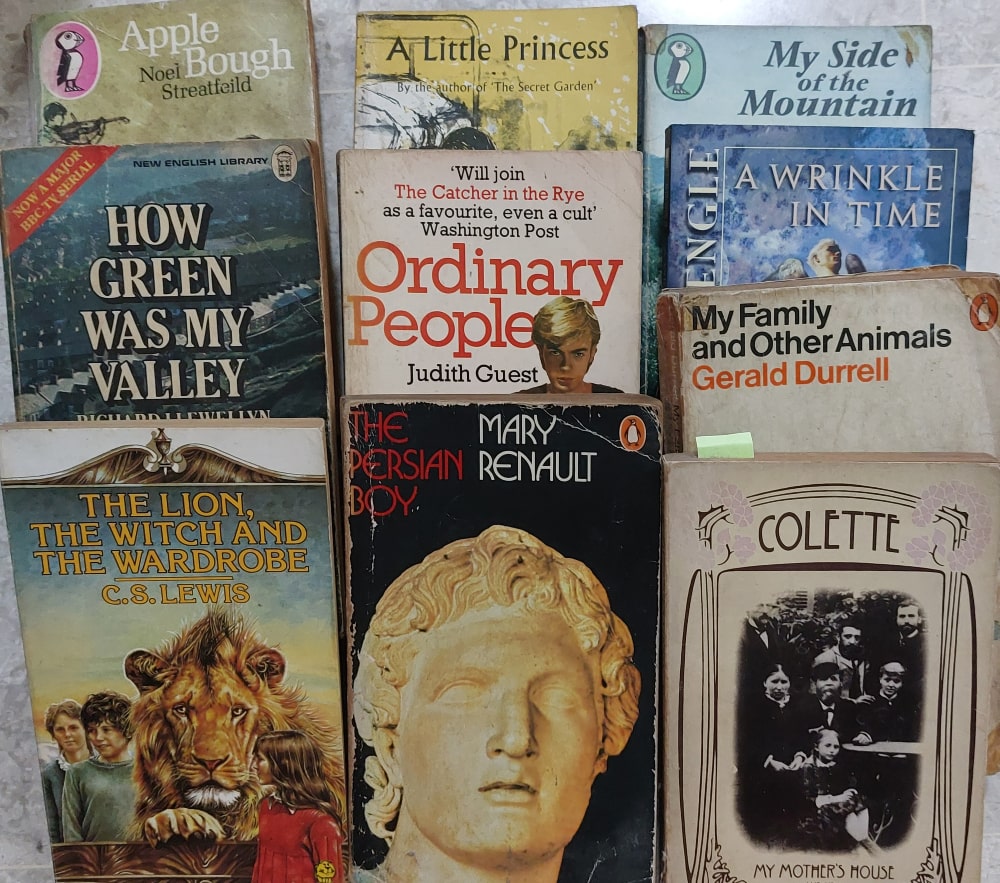
In the old days before ebooks and library access (back then I only got to go to the national library on Stamford Road during the school holidays. The rest of the year there were only the two Primary School Library bookshelves and the Sunday School library… offerings were kind of limited).
The good thing about having only a few books is that reading and re-reading them got me knowing them almost by heart.
Other favourites were The Diary of Anne Frank, The Bell Jar and Heidi, and J.D. Salinger’s stories about the Glass family (much more so than The Catcher in the Rye), which became my fantasy family.
But it was this book (though I didn’t love Nancy Drew as much as I did Tarzan or the Hardy Boys) that gave me my first reading/writing wake-up moment:
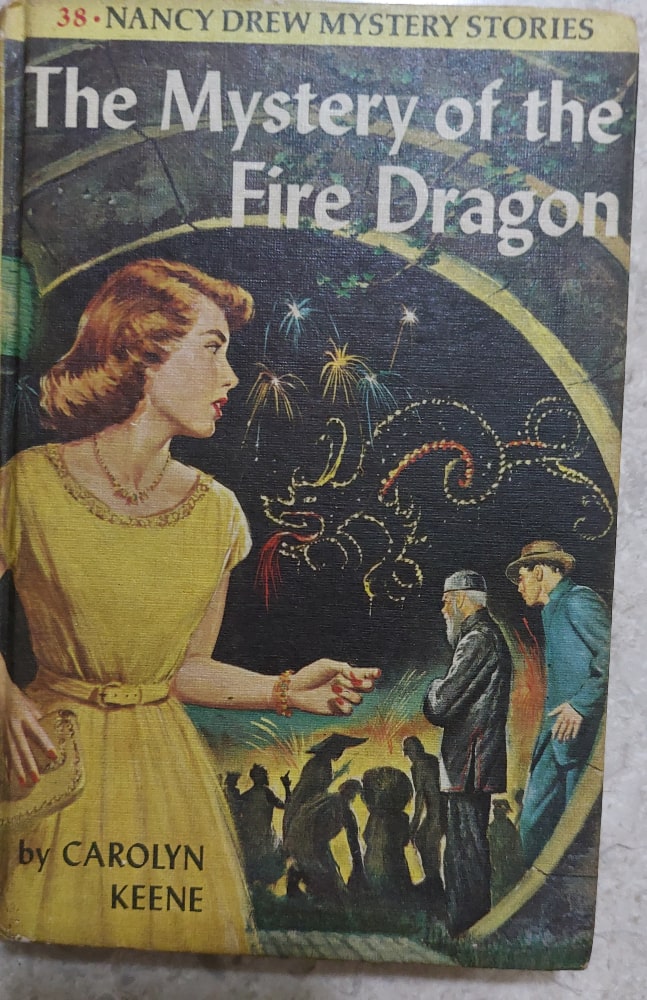
I didn’t notice the hidden racism people talk about these days because it seemed normal that all the people in English books were white just like all the people in Chinese books were Chinese. But in Nancy Drew’s Mystery of the Fire Dragon, I met Song Chi Che (Or Chi Che Song as she’s called in the book), a gutsy Chinese girl who’s kidnapped and rescued and survives (with the help of Nancy and George–who was another favourite).
That’s pretty much all I remember about the story–that Chi Che, a Chinese girl like me, could have adventures in stories that didn’t end in a morality reminder to respect your parents/ eat every grain of rice on your plate/ not litter on the street.
After that I wrote some comic stories featuring Chi Che which have (fortunately) been lost.
Triggered by the renovations, I’ve been trying to cull my books. Not only because of the space crunch but because it made me realise how long it’s been since I’ve picked up (let alone read through) some of these books.
These days I’m reading more on Kindle and Kobo than on paper. I’ll always love physical books but it’s often easier to increase the font on an e-reader than find my reading glasses. Plus I can mark pages, highlight passages and scribble notes to myself without feeling like a vandal.
But even if I’m okay buying ebooks, what about all my old books? Like all our old Calvin and Hobbes–
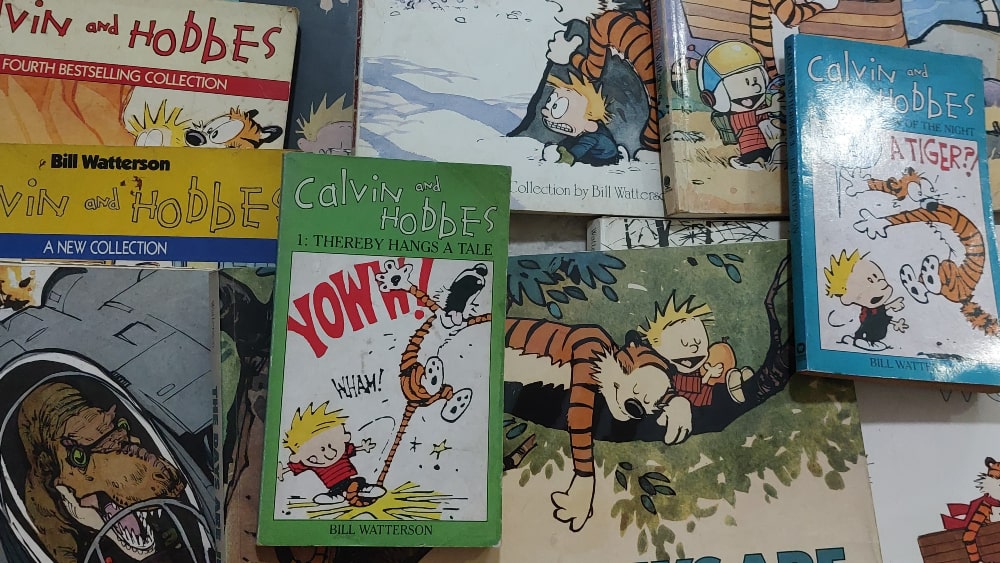
I loved these comics so much. Not just for Bill Watterson’s brilliant depiction of the fantasy/real Hobbes but maybe even more for the family around Calvin that loved and supported without fully understanding him.
Calvin’s parents would say, in logical, rational and practical terms, that I should only keep books that I intend to re-read, right?
Besides, given I now have access to more books than I’ll have time to read, it’s time to let some the old ones go, right?
I looked up several places to donate books to, though it’s so sad that most of my beloved second hand bookshops are gone.
Mine aren’t books that would be worth anything to anyone else.
But it feels wrong to give away books that feel more like close childhood friends/ teen buddies (Sylvia Plath, Joe Orton, JD Salinger) or respected elders (Agatha Christie, Nancy Mitford, MFK Fisher, Lawrence Block) who shaped what I am today even if we no longer spend as much time together.
I’ll be keeping my Agatha Christies and Rex Stouts–even though I now have e-copies of most of these books.
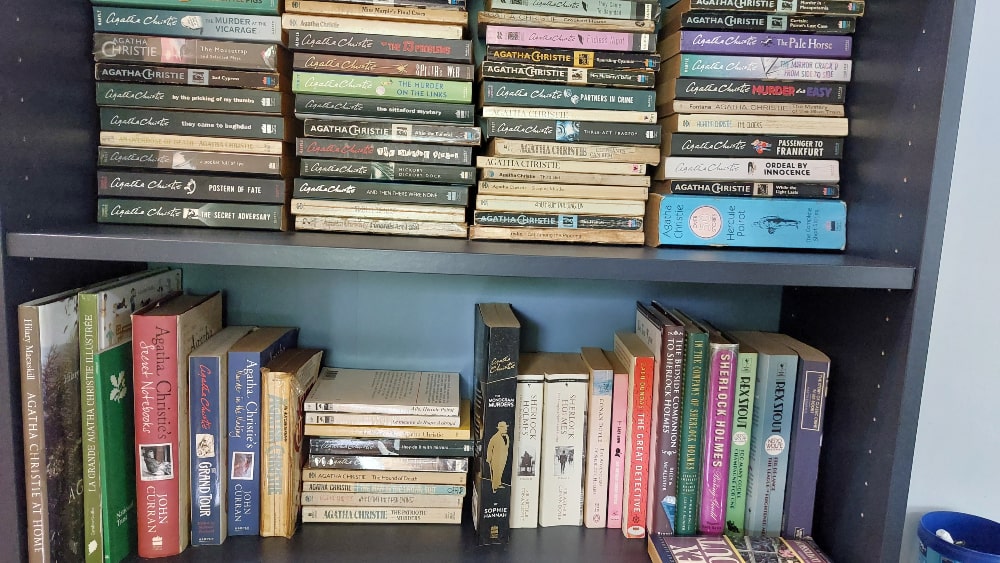
Unlike many other homes, we don’t have an ancestral shrine here, so this bookshelf might serve the same purpose. A place that reminds us of who we are and where we come from and who we will always be grateful to.
I remember discovering and devouring Ovid’s Metamorphosis–I found a copy (plastic bound–no browsing) in the MPH bookshop and insisted on getting it as that year’s ‘good results’ book.
My mum said no. She told me it was a ‘bad’ book without being able to explain why. I realise now that she (incidentally also named ‘Ovidia’) must have been told Ovid wrote Ars Amatoria–a ‘bad’ book and–unlike me–accepted that.
I got my way on the condition I never brought it to school and never told anyone I had it. Yes, I’m telling you now, but my mother’s passed on and won’t read this.
And I really loved it The Metamorphosis. It’s pretty much a run through of most of the stories in Roman Mythology with ‘Amor’ / Cupid wisely/ wittily/ naughtily triumphing over all the other Roman gods. I still have the fraying, falling apart, scotch-taped copy I got then. It’s almost impossible to read (print too small, eyes too old) but that book’s become a sentimental object for me– I admit that even as I know that’s Not what a book should be.
I know it’s not just about letting go of that or any other copy of a physical book (thought would be a big step for me) but needing to figure out what ‘writing books’ or even ‘reading’ means to me in our digital age.
I’m not giving up on books–Amazon birthday vouchers are being Very carefully assessed and assigned–but what about the physical books I already have?
In some cases, even though I own ebook copies, I’m keeping my hardcover copies of Larousse Gastronomique and Tools of Titans because they are browsing friendly. Likewise all my Sherlock Holmes and Nero Wolfes… these work for me more like tarot cards. I don’t think I’ll ever sit down and read them cover to cover, but like tarot cards or how (some) people read the Bible, I can flip through the pages, let them fall open at random and know them well enough to read any passage or page in context. They are like old family photos for me.
But what about books that I read, learned from, respect and am in awe of but don’t love?
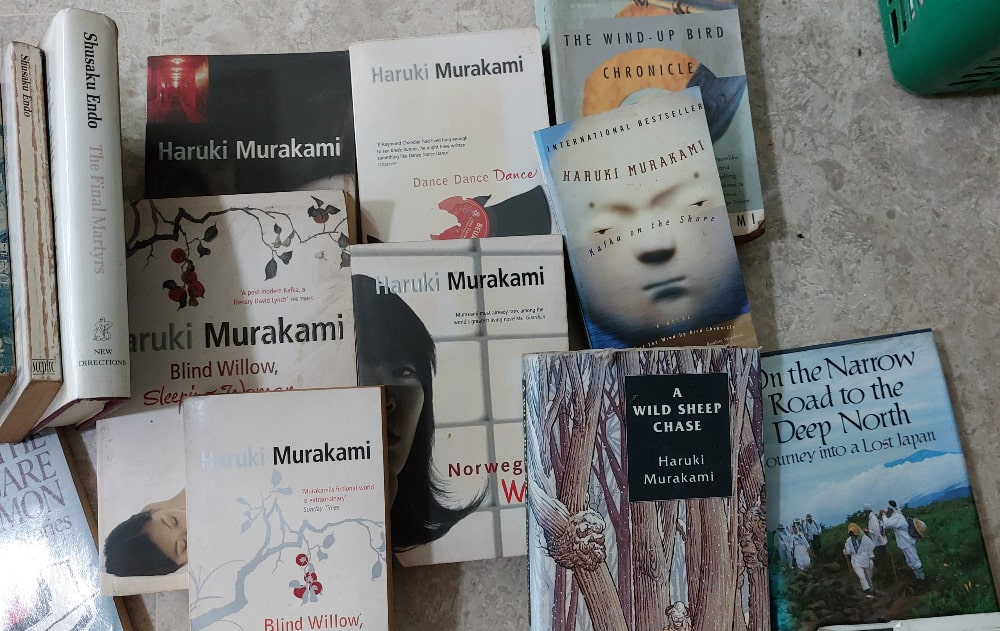
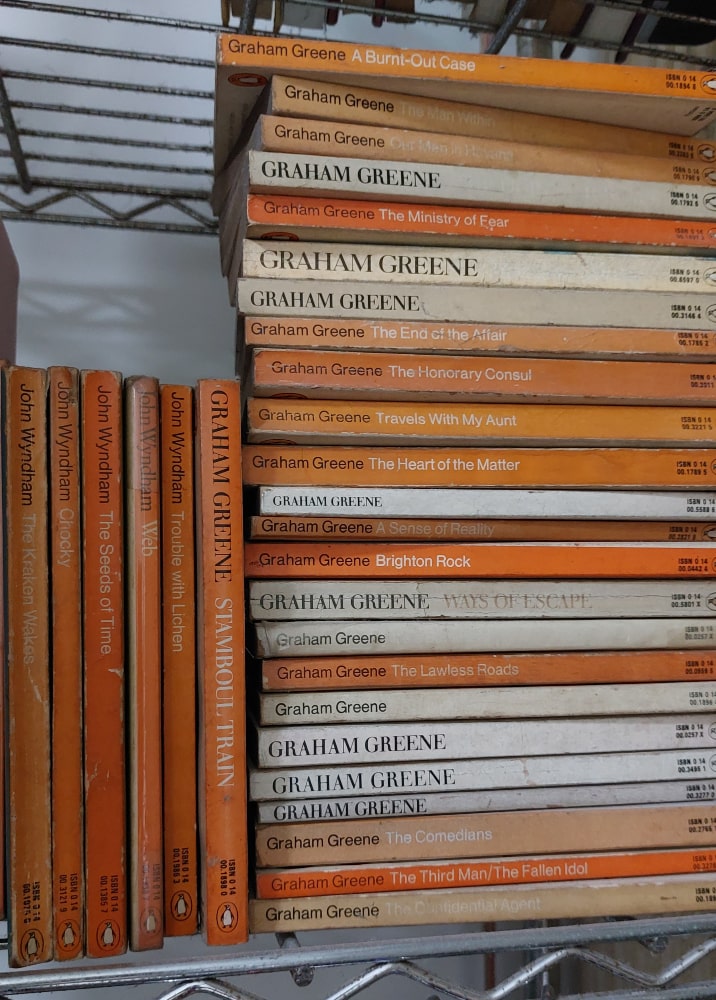
(Okay, writing this makes me realise Haruki Murakami’s probably going to stay)
Balanced with those I respect less but love more–
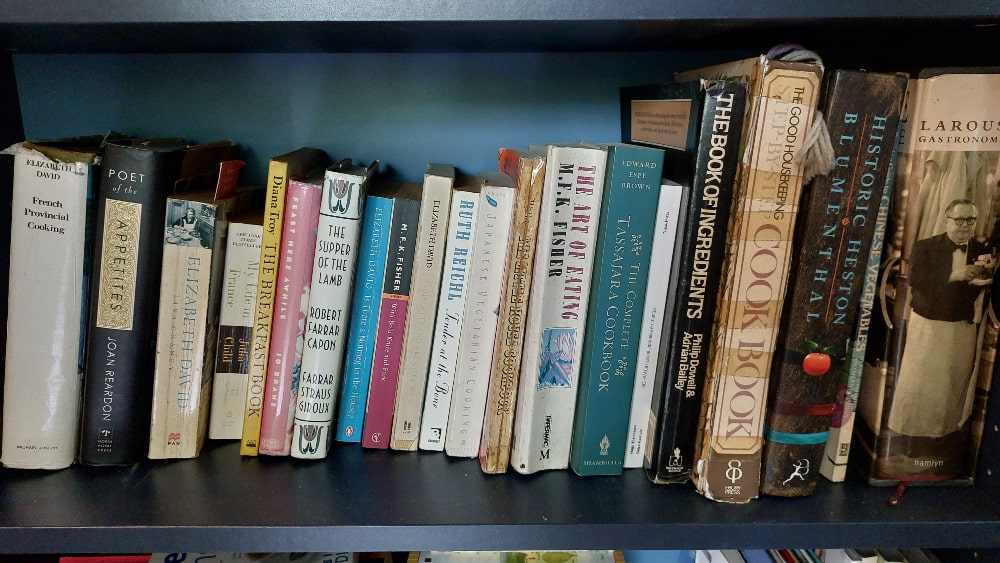
–even though I’m likely never going to cook out of these books I’ve created and enjoyed so many experiences while in their pages.
I’ve already packed up, given away/ donated four huge bags of books… (though there’s no guarantee I won’t head down to the charity store and buy them back next week!) as I realise this isn’t just a shelf space issue.
It’s so difficult because it’s about trying to figure out why we write and what we want our writing to do and be. And how we can make that happen. Once upon a time it was all about holding a published book in your hand, feeling and weight and reality of it. If you wanted to share your life/story/soul with someone, you handed them a copy of your book.
But going even further back than books, it was all about telling stories, writing letters and recording journals in cipher.
It was about serial stories in penny weekly magazines and storytellers entertaining homesick labourers with stories of home and dreams of happy futures and players enacting ghost month dramas to entertain spirits and their human descendants.
That’s our lineage. We are still the music makers, we’re still called to wake people to be ‘the dreamers of dreams’. We just need to figure out what form we work in next. After all, we’re descended from the inventors and adopters of the printing press (as well as those who feared not copying out scrolls or carving out tablets by hand signalled the downfall of humankind).
But how? Every generation’s tried to answer this for themselves–another reason I’ve always loved reading letters and diaries.
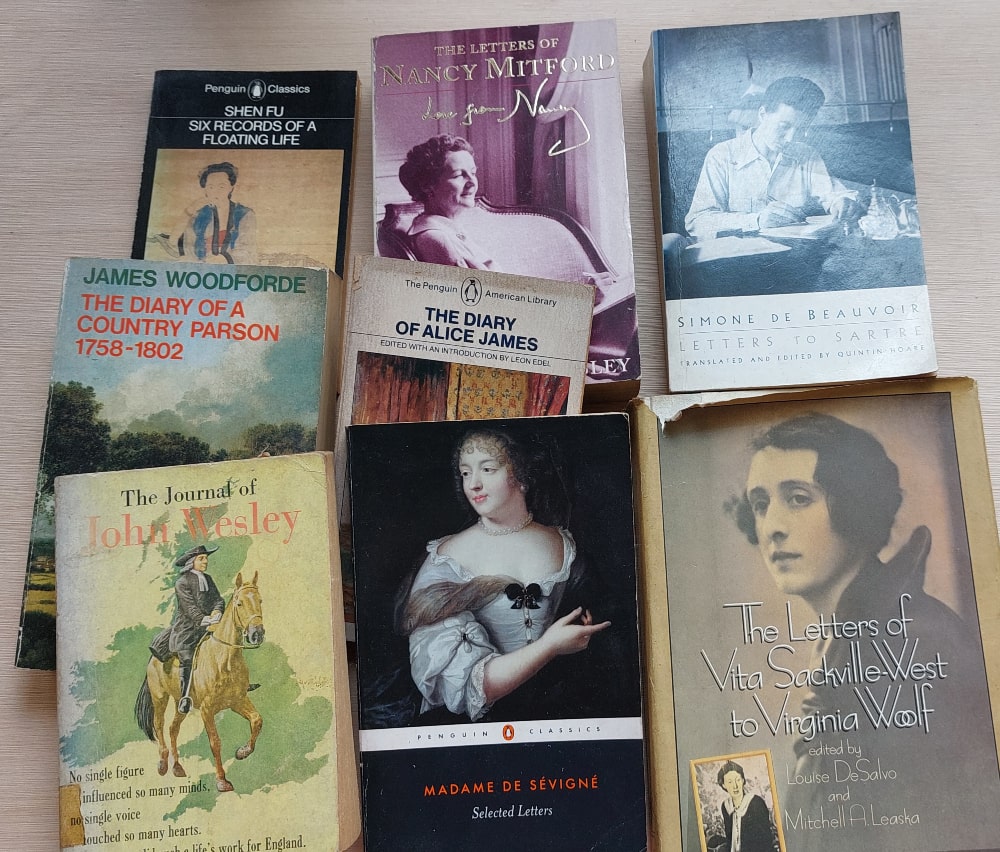
(just a few more books I won’t be giving away!)
And we will too!
